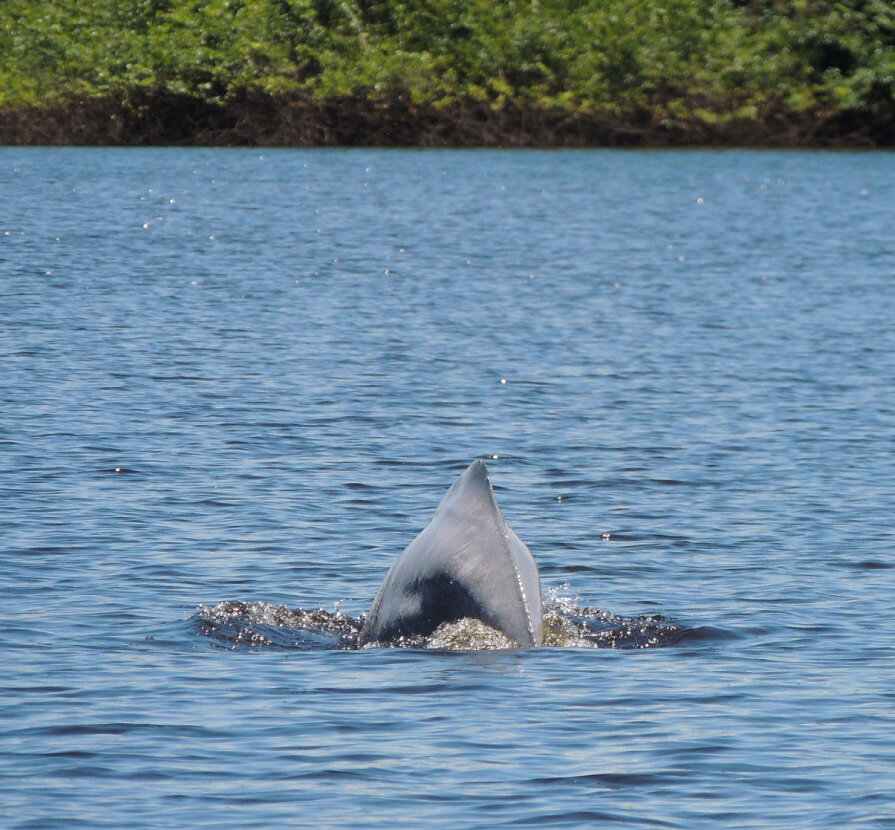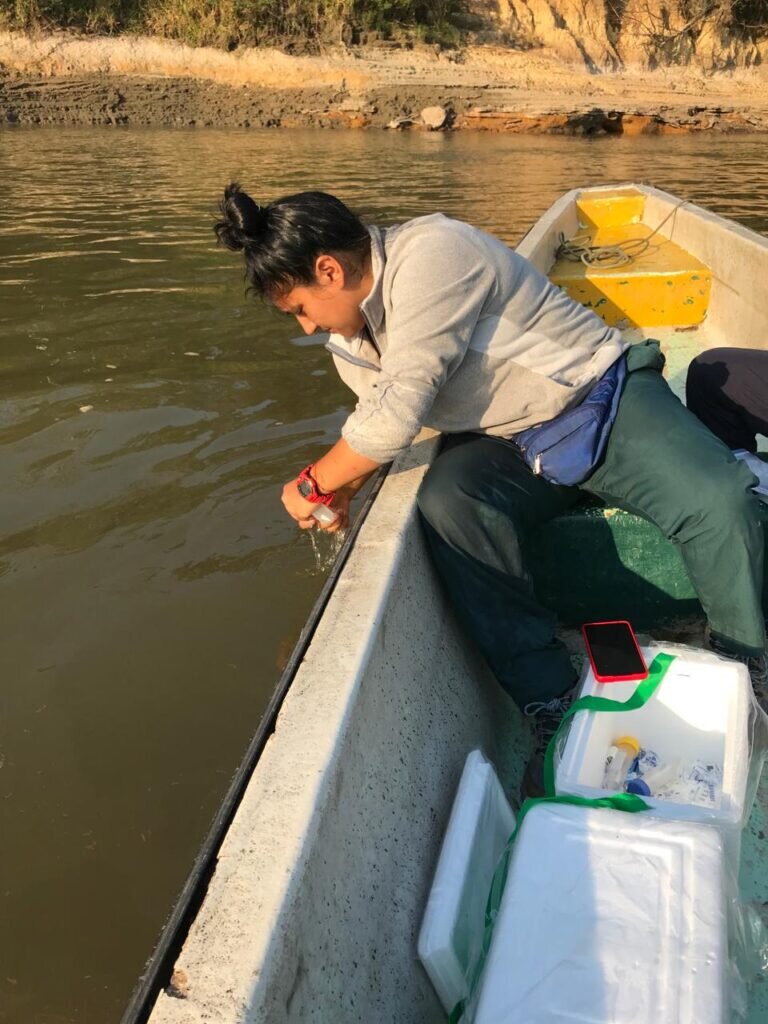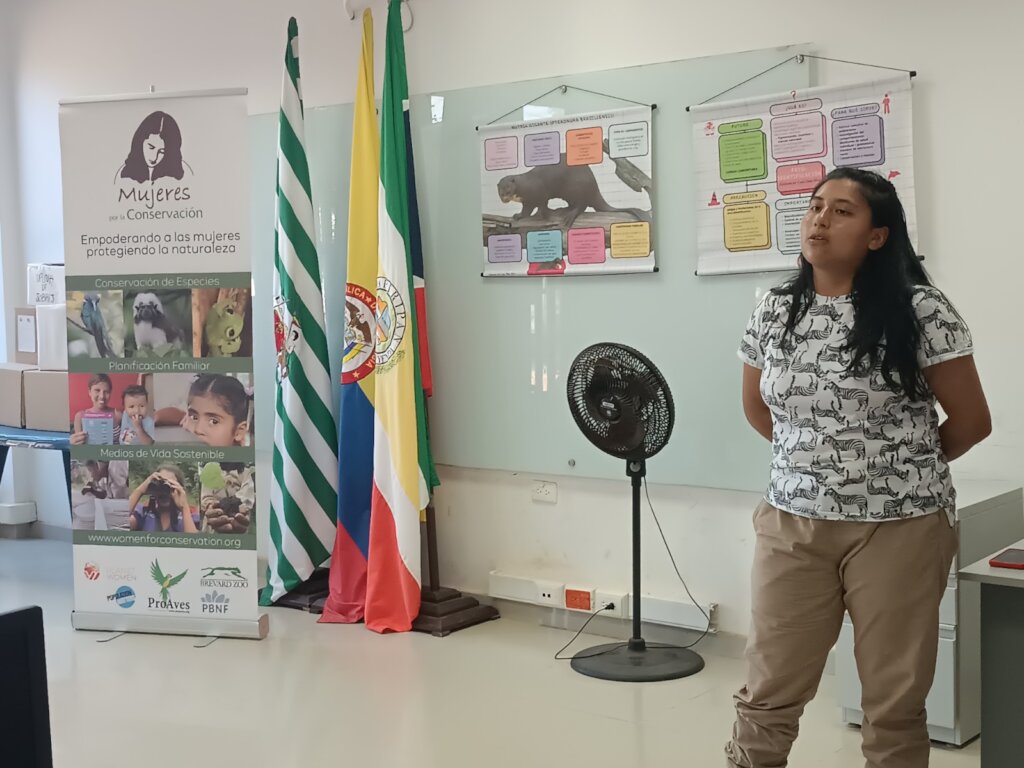By Emily Knudson | Director of Outreach and Philanthropy
The enchanting folklore of the Amazon Basin speaks of a magical being—a pink dolphin that emerges from the river to enchant and lead locals to its underwater world. These mythological tales highlight the deep bond between humans and dolphins, a bond that has deteriorated over the past 25 years due to the dramatic and uncontrolled transformation of the Colombian jungle caused by human activities.
In this project, led by Women for Conservation and supported by your generous contributions through GlobalGiving, we have taken significant strides towards conserving the endangered Amazon River Dolphin (Inia geoffrensis) and addressing the challenges posed by zoonotic pathogens in their habitat.
Project Highlights: Fieldwork and Observations
Luisa Díaz, a veterinary medicine student from Bogotá’s National University, led the fieldwork in the Guaviare River basin. During her engagement with the young residents of Mapiripán and its riverside villages, she noticed a "collective amnesia" among the children regarding the Amazon River Dolphin. This disconnect, fueled by the scarcity of sightings, contrasts sharply with the vivid memories of the grandparents who recall the "Boto" or "Tonina" with nostalgia.
“These species have been forgotten by the younger generations and are no longer remembered as they once were,” observed Luisa. This realization underscored the importance of education in preserving generational knowledge about these dolphins and their critical role in the environment.
Research and Data Collection
The intensive fieldwork involved:
Community Engagement
A crucial element of Luisa’s project was communicating her findings to the Mapiripán community. She conducted workshops to present her results in an accessible manner, emphasizing the urgency of preserving the Amazon River Dolphin and the biodiversity of its habitat. By involving local stakeholders, especially women, Luisa ensured that the community understood the importance of conservation efforts and felt empowered to take action.
Impact and Future Directions
Your generous support has been instrumental in advancing our understanding and conservation of the Amazon River Dolphin. The project has:
Reflection and Gratitude
Luisa reflected on her role as a woman conservationist and agent of change during her fieldwork, emphasizing the values of love, patience, tolerance, empathy, perseverance, and resilience. These values are essential in communicating knowledge and inspiring the next generation of women scientists.
“The role of women brings a special touch and a certain power to the world of conservation. We cannot afford to waste the opportunity provided by Women for Conservation,” Luisa said.
Conclusion
This project has made significant strides in conserving the endangered Amazon River Dolphin and addressing the challenges posed by zoonotic pathogens. The data collected and the community engagement efforts have laid a strong foundation for future conservation initiatives.
We are immensely grateful for your support, which has made these achievements possible. Your contributions have not only supported the conservation of an endangered species but have also empowered a community and fostered a culture of environmental stewardship.
Thank you for being a vital part of this transformative journey with Women for Conservation.
Links:
Project reports on GlobalGiving are posted directly to globalgiving.org by Project Leaders as they are completed, generally every 3-4 months. To protect the integrity of these documents, GlobalGiving does not alter them; therefore you may find some language or formatting issues.
If you donate to this project or have donated to this project, you can receive an email when this project posts a report. You can also subscribe for reports without donating.


